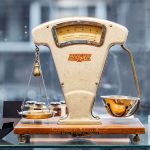In 2013 Edward Snowden published his first whistleblowing article in The Guardian newspaper. With this article, he started a conversation about where individual privacy rights end, and national security begins. He aimed his first dart at the NSA’s call records program. Seven years later, the now-defunct program is still not over and done with.
The Court of Appeal of the Ninth Circuit ruled in September 2020 that the NSA’s Telephone Metadata Call Tracking Program was unlawful based on the Foreign Intelligence Surveillance Act. Even worse, it may breach constitutional privacy rights.
What was the NSA’s Telephone Metadata Call Tracking Program?
If, like me, you don’t fully remember it (seven years is a long time after all), Snowden’s report exposed an NSA program which required cellular phone companies to provide them with individuals’ phone records. The NSA then dragged these records for contact numbers, and times and dates of calls. They did not have a warrant for this activity, meaning it was not tied to any specific investigation.
The telephone metadata call tracking program was set up in 2001 following the September 11 attacks. It wasn’t authorised by a court at the time. In 2006, it was approved by the FISA court (The United States Foreign Intelligence Surveillance Court, which oversees requests for surveillance warrants against foreign spies on US soil). It was also approved numerous times since, but never in connection with a specific case.
Snooping vs intelligence gathering?
The NSA claimed that intelligence scraped by the program has been used as evidence in domestic extremism trials. However most of the examples given for its effectiveness were overseas, not on US soil. These examples don’t necessarily justify the violation of people’s privacy in the name of the fight against domestic extremism.
The program was in court this year because some of the phone records data was used in the trial of four Somali immigrants to the US who were convicted of planning an attack in Somalia (again an overseas attack). However while the program was ruled unlawful, the judges ruled that the four men will not have their convictions overturned because the telephone metadata program had played a very minor role in their convictions. Again begging the question whether the results of the program justify its methods.
A victory for individual privacy rights
To recap, the NSA’s telephone metadata program is a matter of interest for anyone who campaigns for privacy rights because:
1) It was a warrantless, general ‘snooping’ program that invaded the private telephone call records of millions of US citizens;
2) It had limited impact on achieving its stated aim – that of stopping domestic extremism (it mostly identified overseas extremism);
3) It was only ever produced minor evidence for (one) domestic terrorism conviction(s).The world has moved on a long way from that initial explosion (just think GDPR, CCPA, and other privacy regulations), but legacy acts and ways of working mean that state actors still have access to individuals’ data. This latest ruling is a victory for individuals’ privacy rights, and a blow for state led, mass surveillance programs. However the telephone metadata program was ended in 2015, and put to bed for once and for all in 2019, so this ruling is really just better late than never.







